Kenya is once again walking down a dangerous path, planning to lease its vital port assets to private investors for 30 years. This move, which includes the leasing of key berths at Lamu Port and Mombasa Port, is a blatant giveaway of national resources to private hands under the guise of efficiency.
The Kenya Ports Authority (KPA), a parastatal that has grown significantly in asset value over the years, is now being handed over to investors in a deal that raises more questions than answers.
The most shocking part of this arrangement is that the Treasury, which had previously opposed a similar deal with Dubai Ports World, has suddenly changed its stance and is now backing the plan.
This shift in position exposes the government’s inconsistency and raises suspicions of behind-the-scenes dealings that do not prioritize the public interest.
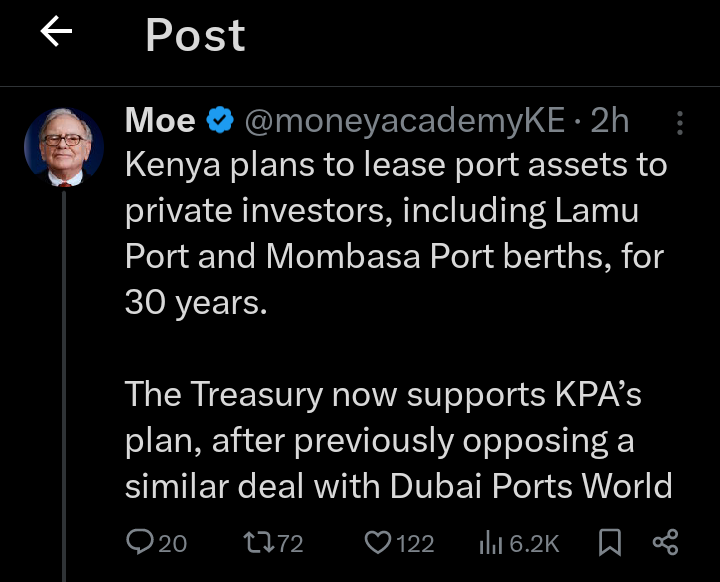
The growth of KPA’s asset base over the last six years shows how strong the authority has been financially. In 2017/18, KPA’s assets were valued at Sh184 billion.
By 2018/19, this had jumped to Sh288 billion, marking an increase of Sh104 billion in a single year. The upward trend continued, reaching Sh295 billion in 2019/20, Sh304 billion in 2020/21, Sh338.4 billion in 2021/22, and finally hitting Sh347 billion in 2022/23.
This consistent growth demonstrates that KPA is a financially stable institution that does not require privatization to operate efficiently. If anything, these figures prove that the authority has been doing well under public ownership. The question, therefore, is why the government is so eager to lease these assets when they are already generating massive revenues.
The leasing plan looks more like an attempt to benefit a few individuals at the expense of Kenyans. History has shown that similar privatization deals in Kenya have only served to enrich a select group of politicians and their business associates while providing little to no benefit to the common citizen.
The standard excuse that privatization will bring efficiency is nothing but a tired lie. If the government were truly concerned about efficiency, it would invest in improving KPA rather than handing over key national infrastructure to foreign entities.
This move also puts Kenya at risk of losing control over strategic maritime resources. Ports are not just about trade; they are national security assets that should remain under the control of the state. Handing them over to private investors for 30 years is equivalent to surrendering a crucial part of Kenya’s sovereignty.
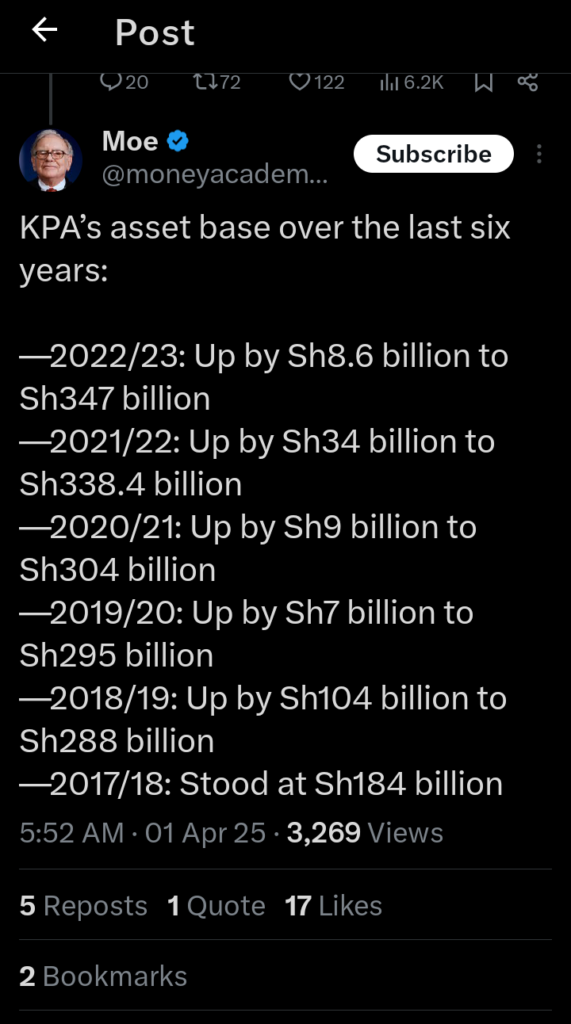
The nation has already witnessed the effects of reckless privatization, with sectors like energy and transport suffering under the hands of profit-driven companies that prioritize revenue over service delivery.
This port leasing plan is likely to follow the same pattern, with increased port charges and job losses for ordinary workers. The government’s decision to go ahead with this plan despite past opposition from the Treasury suggests that there are powerful interests behind the scenes pushing for the deal.
This raises concerns about possible kickbacks and underhand deals disguised as economic policy. It is becoming increasingly clear that the Kenyan leadership is willing to auction the country’s resources for short-term gains while leaving future generations to suffer the consequences.
Leasing out Kenya’s key port assets is not about development; it is about a few individuals securing personal wealth at the expense of the nation.








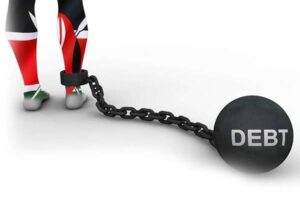

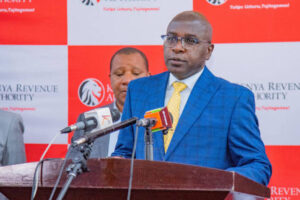
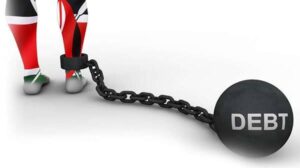

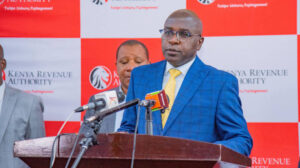






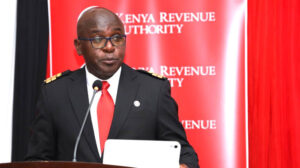
Add Comment